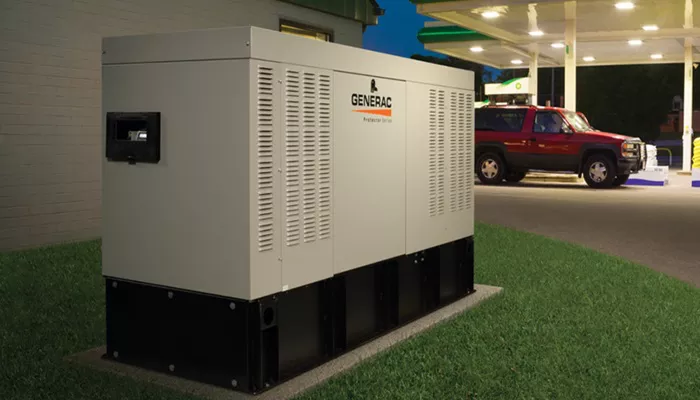When the power goes out, a reliable home generator can keep your lights on, your food fresh, and your essential appliances running. But with so many options available, choosing the right generator can be overwhelming. This guide will help you understand the key factors to consider before making a purchase, including power output, fuel type, portability, and safety features.
Determine Your Power Needs
Before buying a generator, you need to calculate how much power your home requires. Generators are rated in watts (W) or kilowatts (kW), and selecting the right size ensures your appliances run smoothly without overloading the system.
How to Calculate Your Power Requirements
List essential appliances: Identify which devices you need during an outage (e.g., refrigerator, lights, furnace, medical equipment).
Check wattage ratings: Most appliances have a label showing their running watts (continuous power needed) and starting watts (extra power needed when turning on).
Add up the total wattage: Ensure your generator can handle both the running and peak wattage.
Example Calculation:
- Refrigerator: 800W (running), 1,200W (starting)
- Lights: 200W
- Sump pump: 1,000W (running), 2,300W (starting)
- Total running watts: 2,000W
- Total starting watts (highest surge): 2,300W
- Recommended generator size: At least 3,000W to handle surges.
Types of Generators Based on Power Output
Portable Generators (1,000W – 10,000W): Best for temporary use, powering a few appliances.
Inverter Generators (1,000W – 4,000W): Quieter, fuel-efficient, ideal for sensitive electronics.
Standby Generators (7,000W – 20,000W+): Permanently installed, automatically turn on during outages, powering the whole house.
Choose the Right Fuel Type
Generators run on different fuels, each with pros and cons.
Gasoline Generators
Pros: Affordable, widely available.
Cons: Short shelf life (stabilizer needed), noisy, less efficient.
Propane Generators
Pros: Cleaner burning, longer shelf life, good for standby units.
Cons: Requires large storage tanks, may be less efficient in cold weather.
Diesel Generators
Pros: Durable, fuel-efficient, long-lasting.
Cons: Noisy, expensive, emissions concerns.
Dual-Fuel or Tri-Fuel Generators
Can switch between gasoline, propane, or natural gas, offering flexibility.
Consider Runtime & Fuel Efficiency
A generator’s runtime determines how long it can operate on a full tank.
Portable generators: Typically run 8–12 hours at 50% load.
Inverter generators: More fuel-efficient, can run longer on less fuel.
Standby generators: Connected to a large fuel source (propane/natural gas), running for days.
Tip: Look for models with an “eco-mode” that adjusts engine speed based on load, saving fuel.
Noise Levels Matter
Generators can be loud, which may be an issue in residential areas.
Standard portable generators: 65–75 decibels (similar to a lawnmower).
Inverter generators: 50–60 decibels (quieter, like a normal conversation).
Standby generators: Around 60–70 decibels but installed farther from living spaces.
Check local noise regulations before purchasing.
Transfer Switch & Installation
For safety and convenience, a transfer switch is essential if connecting to your home’s electrical system.
Manual transfer switch: Requires you to switch power sources manually.
Automatic transfer switch (ATS): Used with standby generators, activates instantly when power fails.
Warning: Never plug a generator directly into a wall outlet (“backfeeding”), as it can electrocute utility workers and damage your home’s wiring.
Safety Features to Look For
A good generator should include:
Automatic voltage regulation (AVR): Prevents power surges that can damage electronics.
Low-oil shutdown: Stops the engine if oil levels are too low, preventing damage.
Overload protection: Shuts off if wattage exceeds capacity.
GFCI outlets: Protects against electrical shocks in wet conditions.
Portability vs. Permanent Installation
Portable generators: Lightweight, movable, but require manual setup.
Standby generators: Fixed installation, automatic operation, higher cost.
If you need backup power for medical devices or frequent outages, a standby generator is the best choice.
Maintenance Requirements
All generators need regular maintenance:
- Oil changes (every 50–100 hours for gas models).
- Air filter cleaning/replacement.
- Fuel stabilizer for gasoline to prevent degradation.
- Battery checks (for standby generators).
Budget & Brand Reliability
Budget portable generators: 400–1,500.
Inverter generators: 600–3,000.
Standby generators: 2,000–10,000+ (including installation).
Reputable brands: Honda, Generac, Champion, Westinghouse, Briggs & Stratton.
Conclusion
Choosing the right home generator depends on your power needs, fuel preference, noise tolerance, and budget. Portable generators are great for occasional use, while standby generators offer seamless, whole-house backup. Always prioritize safety with proper installation and maintenance. By considering these factors, you can find a generator that keeps your home running smoothly during any power outage.

